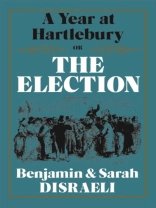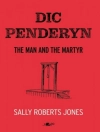The revelation that a long forgotten novel first published anonymously in 1834 is the work of Benjamin Disraeli and his sister Sarah is an exciting literary event. Newly discovered letters between brother and sister prove without doubt that it was written jointly by them. We do not have to look far for the reason for their secrecy. The vividly described election which forms the centrepiece of the story is clearly based on Disraeli“s recent experiences as an unsuccessful candidate in two elections at High Wycombe. His political career had a long way to go and the last thing he wanted was to jeopardize it by revealing his motives in the past or his hopes for the future.
The hero, Aubrey Bohun, has, like Disraeli, recently returned from mysterious travels in the East, but unlike him has his own castle and an income of £30, 000 a year. Bohun obviously contains an element of wish fulfilment and allows the authors to incorporate in the novel elements of wish fulfilment and allows the authors to incorporate in the novel elements of a popular genre known in its day as “silver fork“ fiction – revelations of high life. Although there is much of this and of melodrama too, there is also some splendid social irony.
Michael Foot says “the volume is quite fit to takes its place in the true Disraeli canon and contains many gems which add fresh gleams to the portrait of Disraeli himself.“
Two appendixes explain the literary detection that proved the book“s authorship and the parallels between the politics of Aubrey Bohun and Disraeli.












